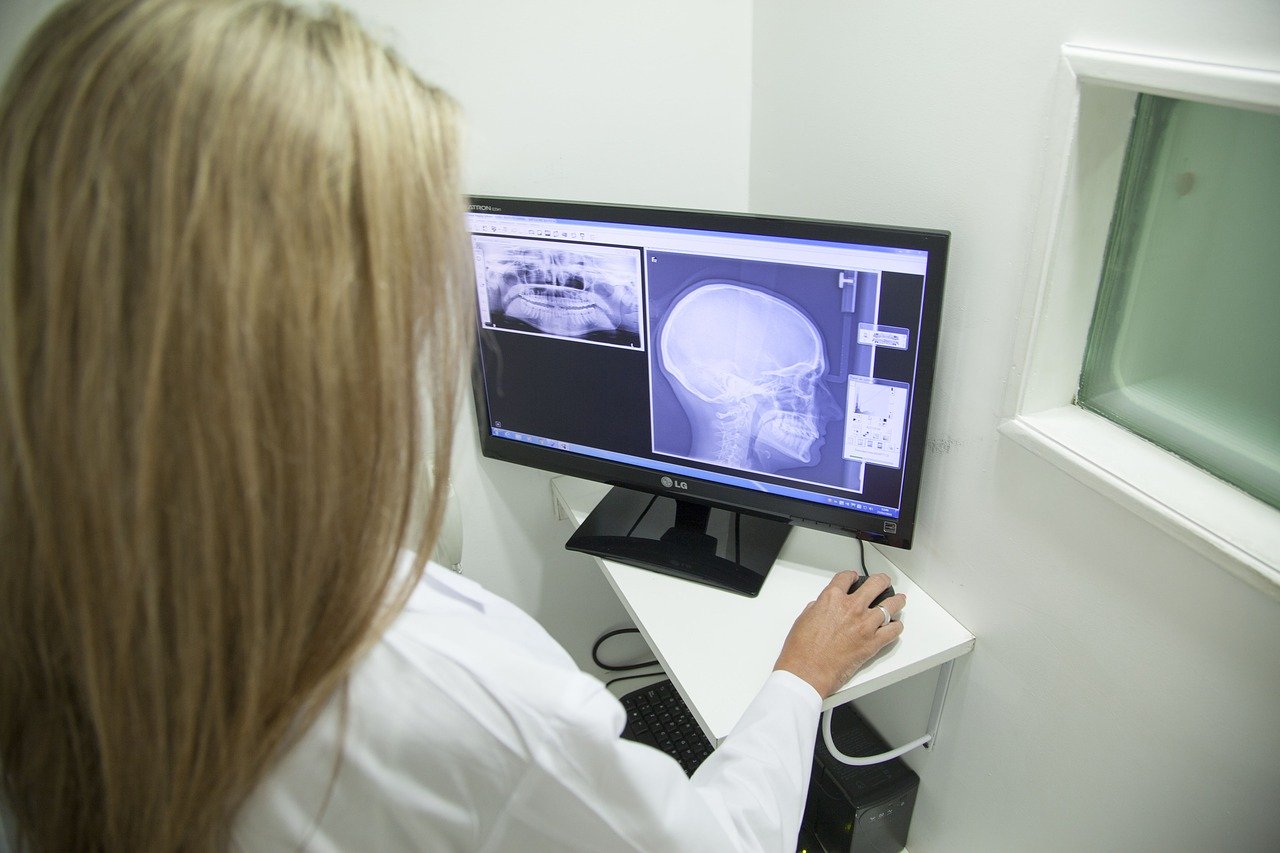A lot of people don’t know the difference between a Registered Nurse (RN) and a Licensed Practical Nurse (LPN).
Both are rewarding and fulfilling careers in healthcare and nursing.
However, when it comes to salary, education, and responsibilities, they are quite different.
Before you start your education for a nursing career, it’s a good idea to get a better understanding of the career goals and responsibilities of RNs and LPNs.
In simple terms, LPNs provide more basic nursing care to patients and work supervised by RNs.
On the other hand, RNs are responsible for developing a treatment plan and administering medication to patients to promote and improve the health of patients.
Article Table of Contents
The Difference Between LPNs and Other Nurses
There are many differences between LPNs and other nurses, but their daily responsibilities often include similar work.
The biggest differences between LPNs and other nurses include:
Certified Nursing Assistants (CNAs)
- Similar to LPNs, CNAs obtain their certification within one year of coursework and offer basic care to patients.
- They aren’t considered to be licensed nurses, though.
- CNAs work supervised by LPNs and RNs.
Licensed Vocational Nurses (LVNs)
- LVN is the same position as LPN, the difference lies strictly in terminology.
- The LVN title is used and Texas and California.
Registered Nurses (RN)
- The training and licensing process for RNs takes two years.
- Their basic duties are similar to LPNs.
- However, their salaries are higher, and they have more responsibilities, including performing procedures and tests as well as supervising LPNs and CNAs.
Nurse Practitioners (NPs)
- First, aspiring NPs need to complete a BSN or MSN degree, then, pass an additional licensing exam to become certified.
- Licensed NPs are allowed to perform more tasks than other nurses, can write prescriptions, and work without the physicians’ supervision.
LPN vs. RN Education
The necessary education is one of the biggest differences between an LPN and an RN.
LPN programs focus more on “performance” skills.
RN programs, on the other hand, are designed to develop both “performance” and “thinking” skills.
Because of this, LPN programs are shorter than RN programs and are typically less costly.
An LPN program takes about 12 months to complete.
Many are looking for shorter time frames as passionate students can join the healthcare workforce more quickly.
Many aspiring LPNs complete their programs at technical or community colleges.
During the program, LPN candidates will have to complete supervised clinical training as well to gain hands-on experience.
Besides nursing courses, students can take classes concentrated on biology, pharmacology, and human anatomy.
LPN programs are designed with a deeper focus on learning how to perform the skills necessary to take care of patients.
Registered Nurses programs require from 18 to 36 months to complete.
RNs need a professional nursing degree.
The duration of the program depends on the type of RN degree one is going for.
The most common degrees RNs obtain include BSN (Bachelor of Science in Nursing) and ADN (Associate Degree in Nursing), as well as a diploma from an accredited program.
You should remember that in most cases a BSN is preferable to a diploma or an ADN.
It usually takes about four years to complete a BSN program.
Diploma and ADN programs take about 2-3 years.
Even though the three programs vary, all of them will focus on a variety of hands-on and clinical experiences.
They also cover classes on social, physical, and behavioral sciences.
These programs also include courses that cover legal, ethical, and leadership programs, pharmacology, and research.
If LPNs wish to advance their careers and gain more responsibilities and higher pay, they can enroll in bridge programs.
With these programs, they can transition faster and obtain certification for new nursing roles.
Bridge programs offer a transition from LPN to ADN, CNA to LPN, LPN to RN, LPN to BSN, as well as LPN to RN Online.
LPN vs. RN Salary
The salaries of LPNs and RNs vary depending on the location.
They can also be influenced by the demand for RN and LPN jobs as well as the cost of living in the area.
According to the Bureau of Labor Statistics, the average salary for LPNs was about $42,500, and the median for RNs approximately $66,500, as of 2016-2017.
Salaries also depend on the years of experience as well as the area of specialization.
Typically, with more experience, nurses earn a higher salary.
The highest pay is available for critical care specialties such as emergency department (ED), labor and delivery (L&D), intensive care unit (ICU), and operating room (OR).
Usually, RNs and LPNs have more critical care specialty positions open.
LPN vs. RN Job Duties
The responsibilities of LPNs and RNs are very different.
The law requires an RN to oversee LPNs.
This can vary depending on the healthcare setting as well.
For example, in hospitals, RNs may be assigned to six patients on the floor, together with one LPN, and, maybe a CNA (Certified Nursing Assistant).
CNAs may be assigned to three times more patients.
In this case, LPNs will help RNs with medication administration (not including IV in most states).
An LPN also assists the RN with ADLs (activities of daily living) and wound care.
RNs would primarily handle charting, care plans, administering medication through IV, and updating physicians.
In a skilled nursing facility, an LPN would be responsible for all those activities, except for IV.
The RN, in the meantime, would monitor the operation of the entire facility and LPNs.
Generally, LPNs provide basic nursing care, such as helping comfort patients by assisting them with changing and dressing, checking blood pressure, inserting catheters, etc.
Since LPNs have to report the statuses of patients to RNs and doctors, they work closely with RNs.
Responsibilities of an LPN
LPNs need a variety of skills and be able to:
- Take vital signs.
- Monitor patients.
- Administer medications (not IV in most States).
- Insert and care for urinary catheters.
- Perform emergency CPR.
- Insert and care for patients with nasogastric tubes.
- Change wound dressings.
- Care for patients with ventilators and tracheostomy tubes.
- Execute a nursing care plan formulated by a Registered Nurse (RN).
- Collect specimens such as blood and urine.
- Provide feedings through nasogastric or gastrostomy tubes.
- Know when to call appropriate physicians.
- Chart medical records.
Responsibilities of an RN
Besides the duties mentioned above, RN’s responsibilities include additional skills:
- Supervising LPNs.
- Wound care.
- Properly assessing and managing all patient populations with appropriate intervention.
- Maintaining accurate documentation.
- Administering and monitoring patient medications (including IV).
- Inserting, managing, and discontinuing intravenous catheters and intraurethral catheters.
- Taking vital signs as well as recognizing and addressing abnormalities.
- Feeding, dressing, and performing hygiene.
- Safely transferring patients into and out of bed and chair.
- Performing BLS (Basic Life Support), ACLS (Advanced Cardiac Life Support), and/or Pediatric Advanced Life Support (PALS).
- Ensuring patient safety – usually known as “do no harm”, or nonmaleficence.
- Admitting and discharging patients safely and appropriately.
- Developing a plan of care and wellness for each patient.
LPN vs. RN Licensing and Certification
LPNs and RNs should both pass particular exams to be licensed.
Once LPNs complete an accredited and state-approved Practical Nursing program, they should pass the National Council Licensure Examination (NCLEX-PN).
After they pass it, they can start practicing as a Licensed Practical Nurse.
Registered Nurses have to complete an accredited and state-approved nursing program as well.
Upon completion, they take the National Council Licensure Examination (NCLEX-RN).
Besides passing the exam, RNs can also choose a specialty and get certified in it, including ED, L&D, or ICU.
They can do this after having worked in the specialty for a particular number of hours.
Usually, it takes about one year.
Read the full guide: How to Become a Licensed Practical Nurse



